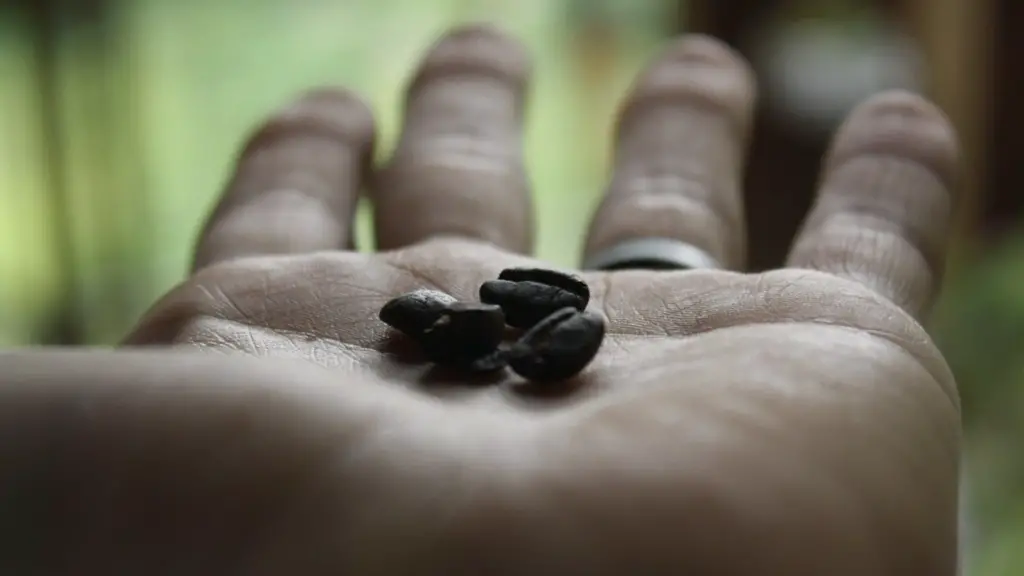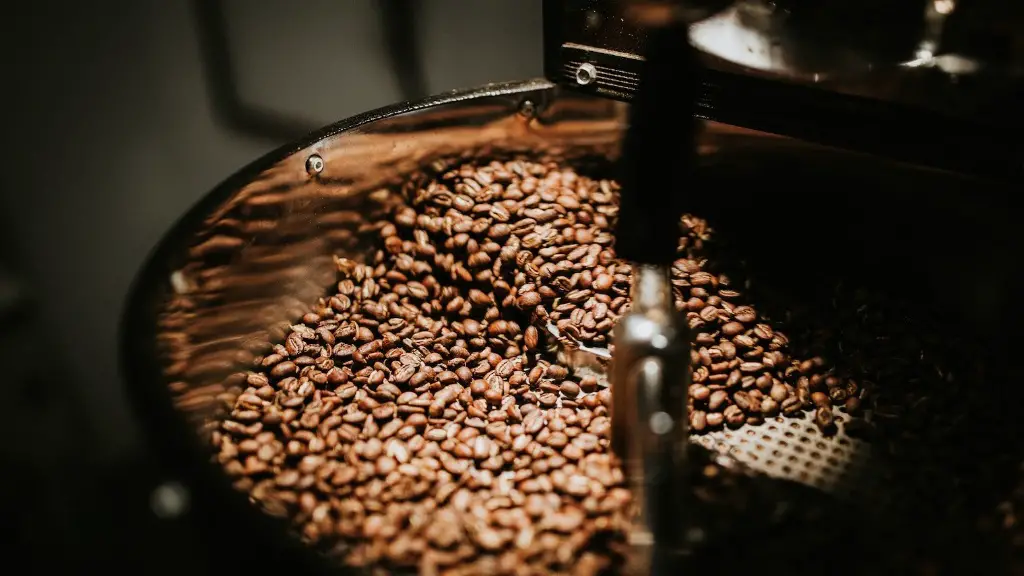Black coffee can be a great way to boost your weight loss goals. But how you drink it, and how often you consume it, is important if you want to see results. Drinking black coffee too much can lead to dehydration, insomnia, and may even contribute to weight gain. Read on to learn more about when the best time is to drink black coffee for weight loss.
If you’re looking to use black coffee to lose weight, there are certain factors to consider. Firstly, the amount of caffeine in one cup of coffee varies depending on the type, origin, and size. For example, a small instant coffee contains around 65 mg of caffeine, while an espresso shot may contain as much as 90 mg of caffeine. Too much caffeine can have an adverse effect on your health and can even contribute to weight gain. Additionally, the calories in your coffee are dependent on what additives you use. For example, swapping cream and sugar for almond milk and honey can reduce the amount of calories in your coffee.
Health experts advise that limiting your black coffee intake to no more than two to three cups per day can help promote healthy weight loss. It’s best to avoid drinking coffee too close to bedtime since the stimulating effects of caffeine can interfere with sleep and cause insomnia. Several studies have linked poor sleep with an increased risk of obesity. For example, a 2008 study in the journal Nursing Research reported that poor sleep increases the risk of obesity in adults, as disturbed sleep leads to reduced levels of physical activity.
It’s important to note that black coffee is not a replacement for nutritious meals. Nutritionists recommend replacing unhealthy snacks with nutrient-dense foods to meet your body’s needs. For instance, replace unhealthy snacks such as chips, cookies, or candy with fruits and vegetables, lean proteins and healthy fats. This ensures that you maintain a healthy and balanced diet, while still reaping the potential benefits of black coffee.
Although black coffee can potentially benefit weight loss, it’s important to weigh the pros and cons before making it your go-to beverage. Speak to your healthcare provider if you’re considering making changes to your diet and lifestyle in order to reach your weight loss goals.
Impact Of Drinking Too Much Coffee
Drinking large amounts of black coffee on a regular basis can have negative side effects, such as restlessness, insomnia, dependency, and dehydration. This is because caffeine is a diuretic, meaning that it causes the body to expel water via urination. Dehydration can have serious health consequences as it can lead to mental confusion, fatigue, headaches, and an increased risk of certain chronic diseases. Caffeine can also have an effect on your mood and energy levels, leading to anxiety and irritability if consumed in excess.
Additionally, caffeine is known to increase the secretion of stress hormones such as cortisol. High cortisol levels can elevate the metabolism and quicken the breakdown of food and beverages, resulting in higher energy levels. Although this might seem beneficial for weight loss, an overly high metabolism can be linked to an increased risk of weight gain over time.
Experts advise reducing your caffeine intake over time to improve your physical and mental wellbeing. Begin by drinking smaller amounts of coffee and gradually decreasing it over a few weeks or months. This will help you to manage your weight by eliminating any potential reliance on caffeine.
Are There Alternatives To Black Coffee?
If you want to cut out coffee while still getting the same boost of caffeine, there are plenty of alternatives to try. Green tea, for instance, contains a slightly lower caffeine content than coffee, with around 30 mg per cup. This makes it a better option for those who are sensitive to caffeine, or for those who don’t like the taste of black coffee.
Alternatively, you could replace your morning black coffee with an infused herbal tea. This is a great way to boost energy levels and benefit from the caffeine intake without the associated side effects such as restlessness and insomnia. Some of the best herbal tea options for energy include yerba mate, guarana, and ginseng. Energy drinks are also an alternative, however, they can be high in added sugars, which make them a less than ideal choice.
Finally, if you don’t want to give up coffee altogether, adding other ingredients to your cup of joe can help make it more nutritious. Low-fat or non-fat milk and almond or coconut milk are some of the best options, while spices such as ginger, cinnamon and nutmeg can also add flavour and nutrients to your coffee.
Long-Term Weight Loss
Although it’s possible to use black coffee as part of a weight loss plan, for long-term success it’s necessary to have a holistic approach. This means focusing on both diet and exercise. Eating nutritious, whole foods, combined with exercise and regular hydration, are essential for healthy and sustainable weight loss. Furthermore, increasing your physical activity and incorporating activities such as yoga, cycling, or running into your daily routine can boost your metabolism and support weight loss.
Other lifestyle changes such as reducing stress levels, getting enough sleep, and giving up unhealthy habits such as smoking can also help.Finally, it’s important to understand that there is no quick fix for weight loss. Choosing to improve your health and lifestyle requires dedication and commitment if you want to see long-term results.
Use Black Coffee Sensibly
Black coffee can be beneficial for weight loss if you drink it responsibly. Limiting your intake to two to three cups per day, avoiding additives such as cream and sugar, and having it away from bedtime can help ensure that you make the most of its potential benefits. However, if you’re sensitive to caffeine, consider reducing your consumption over time. Additionally, it’s essential to focus on making long-term lifestyle changes to achieve a healthy weight.
Finally, try replacing your black coffee with herbal teas or caffeine-free alternatives such as green tea or energy drinks. You could also add nut milks, honey or spices to your coffee to make it more nutritious. Ultimately, the key is to make sure your coffee fits into a healthy and balanced lifestyle to help you reach your weight loss goals.
Health Benefits Of Black Coffee
Apart from helping with weight loss, black coffee has a number of other potential health benefits. These include boosting your brain function, improving your physical performance, and heart health. As black coffee contains very few calories, it’s relatively low in sugar and fat, making it a much healthier choice than fizzy drinks, milk-based coffees, or sugary snacks.
Additionally, studies have found that black coffee may reduce the risk of certain types of cancer, and can even help to reduce the risk of Parkinson’s disease. One 2017 study even reported that black coffee may improve liver health and can potentially reduce liver diseases such as cirrhosis and fatty liver diseases. Furthermore, drinking coffee regularly can aid digestion, and has been linked to a reduced risk of gallstones and type 2 diabetes.
We should note, however, that coffee intake should be moderated to ensure the best outcome. Too much coffee can put a strain on your body, so try to avoid drinking any more than four to five cups of coffee per day. As with any beverage, it’s important to pair it with healthy eating habits and an active lifestyle for the best results.
Tips On Making Black Coffee Healthier
For those looking to get the most out of their black coffee while maintaining a healthy lifestyle, there are a few tips to keep in mind. Firstly, swap unhealthy additives such as cream and sugar for low-fat milk or plant-based milk alternatives. You could also use honey or natural sweeteners such as maple syrup or date syrup in place of sugar. Additionally, try adding spices such as cinnamon, nutmeg, or peppermint to your coffee to add a little extra flavour.
Furthermore, caffeine affects us all differently so it’s important to adjust your coffee intake accordingly. If you find yourself crashing after drinking coffee or feeling anxious, you may need to scale back your intake. Overestimating your caffeine tolerance can lead to nasty side effects and can impede weight loss, so adjust your black coffee habits accordingly.
Finally, it’s important to be mindful of your overall diet and to ensure that your lifestyle is healthy and balanced. Eating plenty of fruits, vegetables, and lean proteins, combined with exercise and hydration, can help with weight loss and promote healthier habits in the long run. Remember that a healthy diet and lifestyle are essential for long-term weight management and overall wellbeing.





